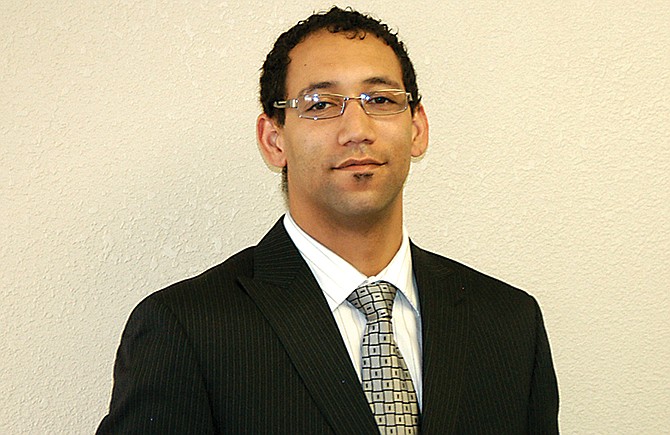Moniteau County Prosecutor Shayne Healea's scheduled trial in June on five felony charges is on hold.
The St. Louis-based Eastern District Court of Appeals last week issued a "preliminary writ of prohibition," ordering Shelby County Circuit Judge Frederick (Rick) Tucker to refrain from action until further notice in the trial, scheduled to begin with jury selection June 5.
Healea faces the five charges lodged by a Boone County grand jury indictment after an Oct. 25, 2014, accident at Columbia's Addison's Restaurant - including leaving the scene of an accident where there was an injury or property damage and four counts of second-degree assault for operating a vehicle while intoxicated, resulting in an injury.
The appeals court issued its preliminary writ after Healea's lawyer - Shane Farrow, of Jefferson City - asked the court to block the trial, set in Shelby County on a change of venue.
In his 17-page motion, Farrow repeated the argument he's been making since last year - there should be no trial and no charges because Healea's constitutional right to consult with his attorney in private was violated on the night of his arrest.
"(Judge Tucker) is in possession of a Special Master's report containing the content of (Healea)'s attorney-client communication and has ordered the report released to the public," Farrow wrote. "(Tucker) is without any legal authority to disseminate attorney-client privileged information to the public. Such a release of privileged information by (the judge) would constitute a clear abuse of discretion."
After the accident, Columbia officials reported Healea backed his pickup truck, with the tailgate down, into a glass-block window facing a parking lot in the back of the restaurant, and four people inside the restaurant were hurt by the broken glass.
Because Healea and Boone County Prosecutor Dan Knight were officers in the statewide prosecutors association, the attorney general's office was appointed as a special prosecutor in the case - and the AG's office later won the grand jury indictment lodging the five charges against Healea.
Late last year, Farrow asked Tucker to throw out the state's case, arguing Columbia police - after arresting Healea - violated Healea's constitutional right to consult privately with his attorney by placing him in a holding cell where, in the words of the newest motion, "without (Healea)'s knowledge, the conversation was recorded on department audio and video equipment (and) was then provided to the Office of the Attorney General."
That phone call lasted 20 minutes, and Farrow wrote, the recording equipment was able to capture both sides of the conversation.
In his motion to the appeals court, Farrow repeated his earlier allegation that the attorney general's office had access to the recording of Healea's "attorney-client privileged confidential communication since a time before they sought an indictment against (him). After obtaining an indictment, they possessed the recording all while preparing witnesses for testimony against (Healea), preparing witnesses for depositions against (him), and preparing witnesses to testify at motions to suppress filed by (him)."
After Farrow made a similar argument to Tucker last year, the judge assigned his predecessor, now-retired Circuit Judge Hadley Grimm, as a special master to investigate the constitutional questions.
Grimm held a closed-to-the-public hearing Dec. 21, then issued a report to Tucker that, Farrow wrote, "contained portions of the actual content of the attorney-client phone call, rather than simply finding whether or not the recording was in fact an attorney-client phone call and whether or not its contents were prejudicial to (Healea), in the hands of the Columbia Police Department and Attorney General."
At a March 2 hearing, Tucker ruled Grimm's report should be made public March 10, giving Farrow time to file his appeal.
Tucker also denied Farrow's motion to suppress the search warrant that produced Healea's blood-alcohol information after the accident.
"The arresting officer testified he lost the original warrant and was unable to find it or file a copy signed by the issuing Judge, (Boone County Circuit) Judge Christine Carpenter, with the Court upon filing his return," Farrow wrote to the appeals court. "The State offered a certified court file containing no signed copy of the alleged search warrant. The State also tendered an affidavit by the Judge who was alleged to have issued the warrant (which) stated Judge Carpenter had no independent recollection of signing a warrant for a blood draw" on Healea on the night he was arrested.
Farrow said Tucker ruled the evidence could be used at Healea's trial, "despite the statute which says it is invalid. (Judge Tucker) admitted police violated the law, but stated he did not know what the remedy should be because it was all or nothing, so he declined to provide any remedy."
Farrow also argued the court should block the trial before it happens, because allowing the trial could cause Healea irreparable harm if he were to be found guilty of any of the five charges.
Healea "is an elected official and is required by Missouri law to vacate his office upon a felony conviction," Farrow reminded the court. "To have that conviction overturned after the fact will not restore (Healea) to his duly elected position and will cause (him) to suffer considerable hardship."
The appeals court also ordered Tucker to respond to Farrow's motion by Thursday.
Assistant Attorney General Gregory Michael Goodwin has entered the case on Tucker's behalf, while assistant AG Darrell Moore continues to prosecute the original charges against Healea.

